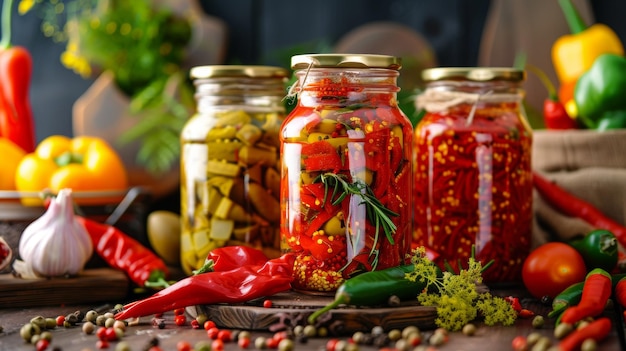
Fermented foods, like sauerkraut, kimchi, and kefir, are getting a lot of attention these days, but can they actually be good for your health? Let’s take a look.
Thirteen years ago, Donna Schwenk was in a tough spot. At 41, during her third pregnancy, she developed preeclampsia. Her baby, Holli, had to be delivered early via C-section, weighing just four pounds. Donna herself ended up with diabetes, high blood pressure, and severe fatigue, struggling to even care for her tiny newborn.
In her search for answers, Donna found a book called “The Body Ecology Diet” by Donna Gates. It talked about kefir, a fermented milk drink rich in beneficial bacteria. Desperate for a solution, she started adding a couple of teaspoons of kefir to Holli’s bottles. The results were astonishing: within a month, Holli gained four pounds. Donna also began drinking kefir and saw her blood sugar and blood pressure levels return to normal in just 12 weeks, feeling better than she had in years.
Now a convert, Schwenk wrote “Cultured Food for Life” and advocates for the benefits of fermented foods. She believes kefir played a significant role in her own and her baby’s recovery. Fermented foods, she says, can improve more than just digestion—they can enhance immunity, weight metabolism, and mood.
Donna participated in a PBS Special called “Health Breakthroughs,” where experts discussed the health benefits of foods like kefir, yogurt, and fermented vegetables. Even prestigious sources like The New York Times have highlighted fermented foods as a significant trend.
Fermentation fan Michael Pollan described his own DIY fermentation experiments, noting the transformation of his kitchen with various jars and bottles. Other proponents, like LA nutritionist Kimberly Snyder, recommend daily consumption of fermented vegetables for their potential to improve weight management, skin appearance, and overall energy levels.
Recent research is increasingly centered on gut health. Kathie Swift, a clinical nutritionist and author of “The Swift Diet,” often begins her treatment plans by focusing on gut health due to its central role in nutrient absorption and its impact on conditions ranging from mood disorders to autoimmune diseases. Studies have shown impressive results, such as weight loss in obese mice after a gut bacteria transplant from lean mice.
An estimated 100 trillion bacteria live in our guts. Unfortunately, age, stress, poor diet, and medications can disrupt the balance—favoring bad bacteria over good. This imbalance can lead to various health issues, from food intolerances to chronic fatigue and even skin disorders. Daniel O’Shaughnessy, a nutritional therapist, stresses the importance of repopulating the gut with good bacteria through diet.
While probiotic drinks are popular, they often contain high sugar levels and transient bacteria that don’t permanently settle in the gut. Instead, consuming a variety of fermented foods, which provide diverse bacteria strains, is recommended. O’Shaughnessy explains that probiotic pills can sometimes contain ‘bad’ bacteria and are usually derived from human waste, which may deter some people.
Fermenting foods is actually an ancient practice, integral to traditional diets worldwide. Jill Ciciarelli, author of “Fermented,” explains that consuming fermented foods was a way to preserve produce before refrigeration and also made nutrients more accessible. From Korean kimchi to German sauerkraut and Japanese miso soup, these foods have long been recognized for their health benefits.
However, it’s important to consume fermented foods in moderation. Introducing them slowly into your diet is key to avoiding digestive discomfort. Look for labels that mention raw, live cultures, and consider making your own fermented foods at home to ensure quality.
Examples of fermented foods include kefir, miso, sauerkraut, coconut yogurt, and kombucha tea. Each has distinct benefits and can be easily incorporated into your diet.
So, are fermented foods worth the hype? According to many health experts, they seem to be. Their potential benefits for gut health and overall wellbeing make them a valuable addition to a balanced diet.




